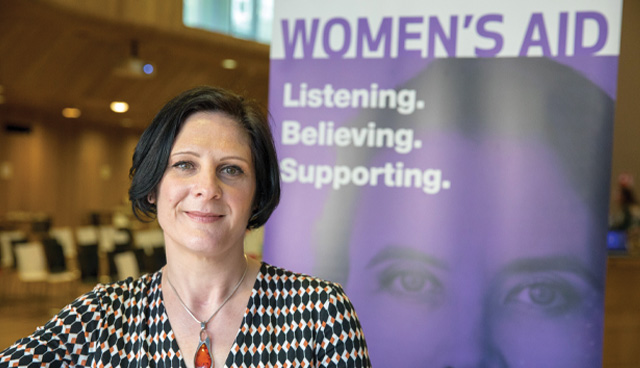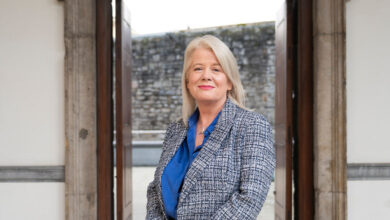Domestic violence and Covid-19

Throughout 2020, the onset of the Covid-19 pandemic and associated public health restrictions have correlated with a surge in domestic abuse and violence in Ireland. Women’s Aid CEO Sarah Benson writes.
The Covid-19 crisis has been devastating for so many in different ways. Livelihoods have been lost, isolation and loneliness have taken their toll and some have paid the ultimate cost with their lives as a result of contracting the virus. We have been called on to stay home to stay safe and protect ourselves and those we love. However, Covid-19 has created the perfect storm for abusive partners to exercise control and inflict violence on women and children.
Over the last nine months, Women’s Aid has been on the frontline answering calls from women who are trapped at home with very dangerous abusers. Women have told us of the devastating effects that lockdown restrictions have had on them. Abusers have used the restrictions as an excuse not to leave after they have been violent. When abusers did not have physical access to current or former partners, they persisted with the abuse through text, phone call, video call and social media. Women with underlying health conditions also reported instances of their partners deliberately not adhering to Covid-19 restrictions and effectively weaponising the virus by coughing or spitting on them.
During the first national lockdown, our 24-hour National Freephone Helpline responded to a 43 per cent increase in calls between the end of March and the end of June, compared to 2019. There was also a 71 per cent increase in visits to the Women’s Aid website for this period. Given this significant rise in contacts during the first lockdown, when the second Level 5 lockdown was announced in late October, Women’s Aid began preparing for a further surge in contacts from women experiencing abuse from their partners.
At this time, the 24-hour National Freephone Helpline has been receiving roughly 1,000 more calls a month than normal and this has been steadily increasing since the second round of Level 5 restrictions were introduced. Callers have been reporting increased anxiety about abusive partners continuing to work from home with more opportunity to abuse and control them. The number of women calling with suicidal ideation has also increased and more women are calling in the middle of the night when their abusive partner is asleep. The number of messages to our Instant Messaging Support Service has also increased with women reaching out to seek support silently.
As the pandemic continues, the effects of job losses, remote working and isolation are being felt. However, for those living with domestic violence these factors add complex layers to situations that are already fraught and dangerous. The reality is that an abuser who may have gone out to work on a daily basis is likely to be at home more, if not all of the time, and this is frightening and treacherous for the many women and children who are spending these six weeks under suffocating circumstances.
We welcome the continued prioritisation of domestic violence by An Garda Síochana through Operation Faoiseamh. However, we are urging an all-of-community response at this time and encouraging everyone to be vigilant and perceptive to anyone they feel may be in an abusive, dangerous situation.
We are encouraging anyone who needs support in relation to domestic violence in a personal context or otherwise to reach out to us on the 24-hour National Freephone Helpline 1800 341 900 or the Instant Messaging Support Service available on the Women’s Aid Website. Women’s Aid is committed to listening, believing and supporting women effected by domestic abuse, especially at this time of increased need.
Sarah Benson is the CEO of Women’s Aid. Women’s Aid is a leading national organisation that has been working in Ireland to stop domestic violence against women and children since 1974.
For further information
T: +353 (0) 1 678 8858
E: info@womensaid.ie
W: www.womensaid.ie





